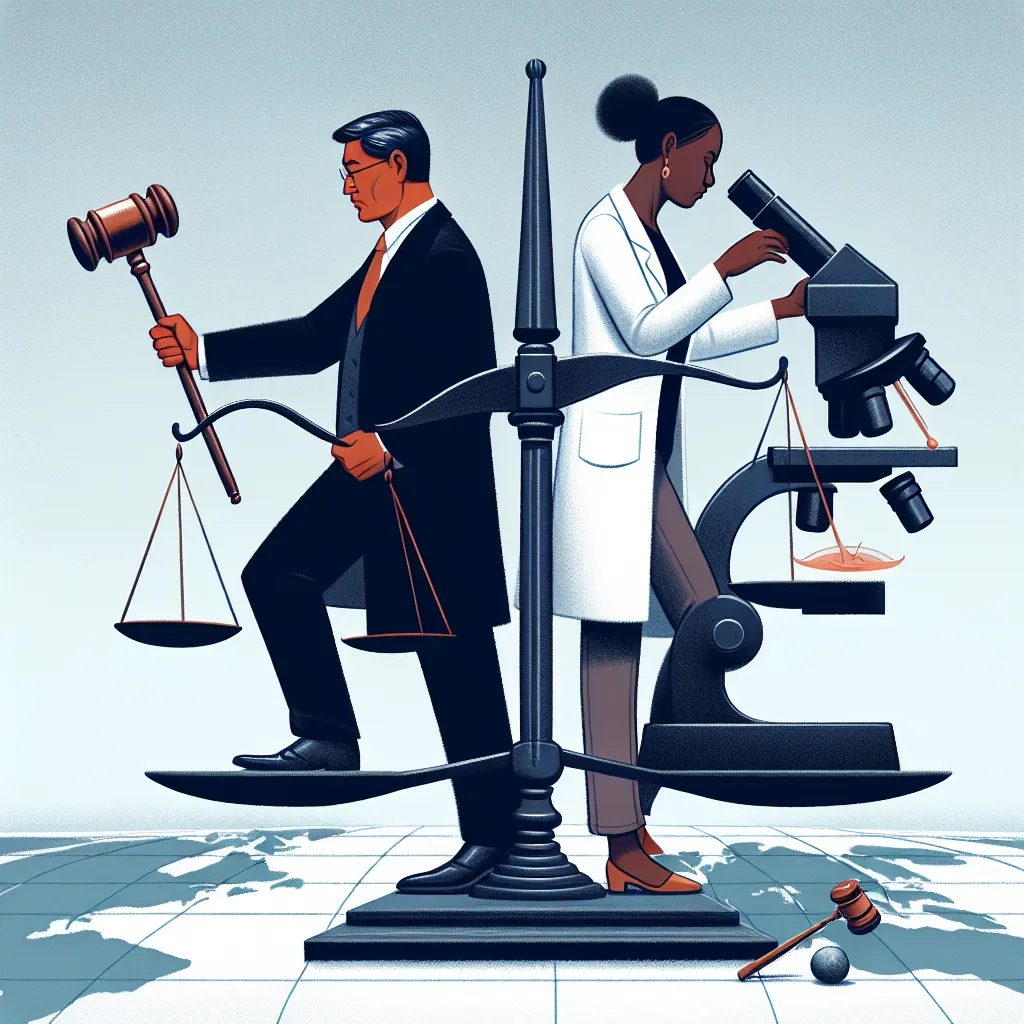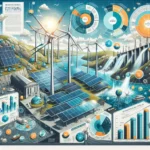In recent years, the topic of ethical leadership in politics has gained significant traction in IELTS Writing Task 2 examinations. This theme reflects the growing global concern for integrity and moral conduct in governance. Based on past trends and current societal focus, we can anticipate that questions related to the importance of ethical leadership in politics will continue to appear frequently in future IELTS tests.
Let’s examine a relevant question that has appeared in recent IELTS examinations:
Some people think that politicians have the greatest influence on a country. Others believe that scientists have the most impact. Discuss both these views and give your own opinion.
Analyzing the Question
This question indirectly addresses the importance of ethical leadership in politics by asking us to compare the influence of politicians with that of scientists. To effectively answer this question, we need to:
- Discuss the influence of politicians on a country
- Examine the impact of scientists on a country
- Compare these two perspectives
- Provide our own opinion with supporting arguments
Now, let’s look at two sample essays addressing this question – one aiming for a Band 8-9 score, and another for a Band 6-7 score.
Sample Essay 1 (Band 8-9)
In the modern world, both politicians and scientists play crucial roles in shaping a nation’s future. While some argue that politicians wield the greatest influence, others contend that scientists have a more profound impact. This essay will explore both perspectives before presenting my own view on this matter.
Those who believe politicians have the most significant influence often point to their direct role in governance and policy-making. Politicians are responsible for crafting and implementing laws that affect every aspect of citizens’ lives, from education and healthcare to economic policies and international relations. Their decisions can dramatically alter the course of a nation, as seen in historical examples like Franklin D. Roosevelt’s New Deal or Margaret Thatcher’s economic reforms. Moreover, politicians often serve as national figureheads, embodying their country’s values and aspirations on the global stage.
On the other hand, proponents of scientists’ supreme influence argue that scientific advancements fundamentally transform societies in ways that transcend political boundaries. Scientific discoveries and technological innovations have revolutionized human existence, from the invention of electricity to the development of the internet and modern medicine. Scientists like Albert Einstein, whose work led to the atomic age, or Tim Berners-Lee, who invented the World Wide Web, have arguably had a more lasting impact on humanity than most politicians. Furthermore, scientific research often informs policy decisions, indirectly shaping political agendas.
In my opinion, while both groups significantly influence a country’s trajectory, politicians ultimately have the greater impact due to their immediate and wide-ranging authority. Scientists may provide the tools and knowledge for progress, but it is politicians who decide how to apply these advancements and allocate resources for further research. The ethical leadership of politicians is therefore crucial, as their choices determine whether scientific progress is used for the benefit of all or exploited for narrow interests.
In conclusion, while scientists undeniably shape our world through their discoveries, politicians’ decisions have a more direct and immediate impact on a country’s direction. The ideal scenario would be a symbiotic relationship where ethical political leadership harnesses scientific advancements for the greater good of society.
(Word count: 345)
 Ethical leadership in politics
Ethical leadership in politics
Sample Essay 2 (Band 6-7)
In today’s world, both politicians and scientists play important roles in a country’s development. Some people think politicians have the biggest influence, while others believe scientists make the most impact. This essay will discuss both views and give my opinion.
Politicians have a lot of power in a country. They make laws and decisions that affect everyone’s lives. For example, they decide about education, healthcare, and the economy. Politicians can change things quickly through their policies. They also represent their country in international meetings and can make agreements with other nations. This shows how much influence they have.
On the other hand, scientists also have a big impact on society. They make discoveries and inventions that can change how we live. Scientific progress has given us things like computers, medicines, and new energy sources. These inventions often last longer than political decisions and can affect the whole world, not just one country. Scientists also help solve big problems like climate change or diseases.
In my opinion, both politicians and scientists are important, but I think politicians have a slightly bigger influence. This is because they can decide how to use scientific discoveries and how much money to give for research. Politicians’ choices can either help or limit scientific progress. They also have more immediate power to change things in a country.
To conclude, while scientists make important discoveries, politicians have more direct control over a country’s direction. The best situation would be when politicians and scientists work together to make good decisions for everyone.
(Word count: 268)
Key Points to Remember When Writing
-
Structure: Both essays follow a clear structure with an introduction, body paragraphs discussing each viewpoint, the writer’s opinion, and a conclusion. The Band 8-9 essay demonstrates more sophisticated paragraph development and transitions.
-
Language: The Band 8-9 essay uses more advanced vocabulary and complex sentence structures, while the Band 6-7 essay uses simpler language but still maintains clarity.
-
Arguments: The higher band essay provides more specific examples and in-depth analysis, while the lower band essay offers more general statements.
-
Opinion: Both essays clearly state the writer’s opinion, but the Band 8-9 essay provides more nuanced reasoning for its stance.
-
Coherence and Cohesion: The Band 8-9 essay demonstrates better use of linking words and ideas, creating a more fluid and cohesive argument.
Vocabulary to Remember
-
Ethical leadership (noun phrase) – /ˈeθɪkəl ˈliːdəʃɪp/ – Leadership that demonstrates and promotes moral conduct
-
Governance (noun) – /ˈɡʌvənəns/ – The act of governing or overseeing the control and direction of something
-
Policy-making (noun) – /ˈpɒləsi ˌmeɪkɪŋ/ – The process of formulating policies, especially in politics
-
Figureheads (noun) – /ˈfɪɡəhedz/ – Nominal leaders or representatives without real power or authority
-
Transcend (verb) – /trænˈsend/ – To go beyond the limits of something
-
Symbiotic (adjective) – /ˌsɪmbaɪˈɒtɪk/ – Involving interaction between two different organisms living in close physical association
-
Harness (verb) – /ˈhɑːnəs/ – To control and make use of natural forces or power
-
Trajectory (noun) – /trəˈdʒektəri/ – The path followed by a projectile flying or an object moving under the action of given forces
In conclusion, the importance of ethical leadership in politics remains a crucial topic in IELTS Writing Task 2. Future questions might explore themes such as the role of transparency in government, the impact of corruption on national development, or the balance between political expediency and moral integrity. To prepare, practice writing essays on these topics, focusing on clear structure, varied vocabulary, and well-supported arguments. Feel free to share your practice essays in the comments section for feedback and discussion.


